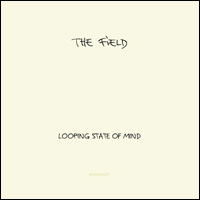
 The Field
The FieldLooping State of Mind
Kompact
If patience is a virtue, then fans of The Field (a.k.a. Alex Willner) should probably be sainted. But when the delayed gratification comes on Looping State of Mind, and all the disparate, repetitive loops coalesce around a torrent of sound, it’s well worth the wait. The noises are mostly synthetic, but they slowly build on each other in a way that’s as mesmerizingly organic as watching the tide roll in. Like Oneohtrix Point Never, Willner squeezes whatever remnants of pop music he can out of a daunting genre (in this case, minimalist house) to invite unsuspecting listeners across unknown, yet navigable, musical expanses. DH

 Wild Flag
Wild FlagWild Flag
Merge
It’s not even a political record, but it feels like a wake-up call. Carrie Brownstein and her all-star team make a stand for intelligent rock musicians who can let the good times roll without sacrificing the potency of their riffage. Janet Weiss’ drums alone will have you digging out those old Sleater-Kinney albums and wondering why nobody else has picked up where they left off. Shouting “we sing to free ourselves” (on “Romance”), they sound like the Marvelettes backed by the Guerilla Girls. With each track more urgent than the last, Wild Flag’s nonchalantly bad-ass attitude will make you realize how much rock music’s been missing its backbone lately. MS

 Destroyer
DestroyerKaputt
Merge
In a year awash with watered-down pop and over-the-top references to a golden age of rock (e.g. “Moves Like Mick Jagger”), it was refreshing to hear someone seeking the past not only for the comfort to live out inner fantasies and vanquish past demons, but to tie it to the present in a symbiotic, easygoing (albeit not exceptionally concise) format. Aesthetically and lyrically, Kaputt finds Dan Bejar in his grandest headspace—always witty, sometimes sardonic and sometimes devastatingly sincere—turning reviled ’80s leftovers like elevator jazz, adult contemporary and out-of-the-blue saxophone solos into languid soundscapes. The result is a sort of Cover Girl–like moment for Detroyer: it’s easy, breezy, beautiful pop magic. JF

 Wooden Shjips
Wooden ShjipsWest
Thrill Jockey
With West, the San Franciscan band’s third album, the Wooden Shjips have come into their own. The production work of Phil Manley has done wonders, and the studio-recorded album makes their previous efforts now sound pale by comparison. With the improved fidelity, the trails of guitar and keys have been thrown in sharp relief, while the bass and drums rumble and crack underneath. Beginning with the cold rush of guitar fuzz of “Black Smoke Rise,” the album plunges headlong down an intoxicating path, each of the subsequent six songs more vivid than the last. West is a towering accomplishment for the band, one that never diminishes with subsequent listens. SS

 tUnE-yArDs
tUnE-yArDsw h o k i l l
4AD
The music press has spent much of the year searching for adjectives as jagged, surprising and rife with paradox as tUnE-yArDs’ w h o k i l l. The album is an absolute explosion of creativity and joy, like an eight-year-old playing his first drum set on Christmas morning. And like that kid’s debut performance, the record is full of noise. Merrill Garbus shoved a barrage of pretty, grating, primal, animalistic, chaotic, mechanized and dissonant stacks of aura and fuzz into orbit around her ecstatic four-octave vocals, without an ounce of pretension, and had the guts to smile while she did it. Somehow these freaked-out slices of eccentricity communicate as completely and honestly as the most straightforward pop tunes. There’s simply nothing like it to be found anywhere else. MS

 Fungi Girls
Fungi GirlsSome Easy Magic
Hozac
The tracks on the Fungi Girls’ second release sound as if somehow they’re simultaneously filtered through a ray of sunshine and the darkness of a dive bar, though the latter is rather improbable since the members of the band aren’t old enough yet to drink legally. Proof that age is just a number, this Cleburne, Texas trio delivers raw and gritty, yet undeniably catchy, hooks tinged with the kind of psychedelia that makes their shroomy moniker make sense. Jacob Bruce’s vocals and lyrics are tinged with ennui born not of jaded rocker world-wariness, but youthful restlessness. The teenage need to get out of the ’burbs and find something more, unsurprisingly, is a reoccurring theme, and since the band has toured and opened for the likes of Wavves and Hunx and His Punx, they probably have a better gauge of what’s out there than their peers, so who can blame them? JR

 Thee Oh Sees
Thee Oh SeesCastlemania
In the Red
This year saw Thee Oh Sees continuing their practice of cranking records out at a near-alarming pace. Castlemania, the first of two Oh Sees LPs to be released this year, took the band’s ramshackle garage rock to the next proverbial level. While little brother Carrion Crawler/The Dream is also deserving of special mention, from the neo-Beefheart jive of “I Need Seed” to the melancholy instrumental meditation of “The Horse Was Lost” and back to the pure psychedelic-pop joyfulness of the band’s cover of “If I Stay Too Long,” Castlemania encapsulates everything that’s great about band leader John Dwyer’s multi-faceted musical mind. Functioning as a cohesive “studio” counterpoint to the band’s bruising live set, Castlemania marks another high point in Thee Oh Sees’ discography. RW

 Davila 666
Davila 666Tan Bajo
In the Red
From the opening movie sample of the first tune, “Obsesiano,” Davila 666 went cinematic on their long-awaited follow-up to their 2008 debut. Not that they were sitting around watching old Coffin Joe VHS tapes (well, maybe), as these Puerto Rican rabble-rousers tour as much as any band on the planet. Hence, the wider-screen production (though still Spaghetti Western grimy) and world-traveled genre flirtations of Tan Bajo. Hints of what might’ve been an ’80s prom closing scene swooner (“¡Diablo!”) point to a band that has retained its effortless ability to fuse decades of R&R infatuations. And while in 2011 there were freight trucks full of fuzz-drenched, doo-wopped garage plop accelerating along the indie underground, Davila 666 did a little bit of this and little bit of that and more, and still hit the road harder than Wez in Mad Max. ED

 Twin Sister
Twin SisterIn Heaven
Domino
Initially, Long Island’s Twin Sister was perceived as a lazily spun, indie-pop reinvention of Fleetwood Mac. They were easy to pass off as hipster soft-rock, but among the folds one could tell they were capable of much more. In Heaven is Twin Sister fully realized, with fevered dreams of minimal sidewalk funk (“Bad Street”), transcendent shoegaze peaks and valleys (“Kimmi in a Rice Field”) and plenty of stunning electro-exotica—all of it orbiting the alien coo and bewitching sensuality of singer Andrea Estrella. The beauty of In Heaven, though, is not necessarily centered on Estrella. This is a psychedelic group effort first and foremost, and the album’s finale, “Eastern Green,” provides proof that there’s a miasma of sound underneath the slick, sparkling surface. KJE

 Youth Lagoon
Youth LagoonThe Year of Hibernation
Fat Possum/Lefse
Trevor Powers is a fairly unassuming dude, but this year the Idaho-born musician’s creaky, moth-eaten indie-pop got the attention of much bigger institutions. He’s a bedroom producer, but Youth Lagoon feels bigger, more universal, with the directness of The Year of Hibernation approaching a place almost defiantly pure. By the end, he’s writing gut-wrenching pop music that doesn’t require an asterisk. In an interview, Powers mentioned that he “just wanted to write honest songs.” Well, he did, eight of them in a row, and the world is still reeling from the impact. LW
